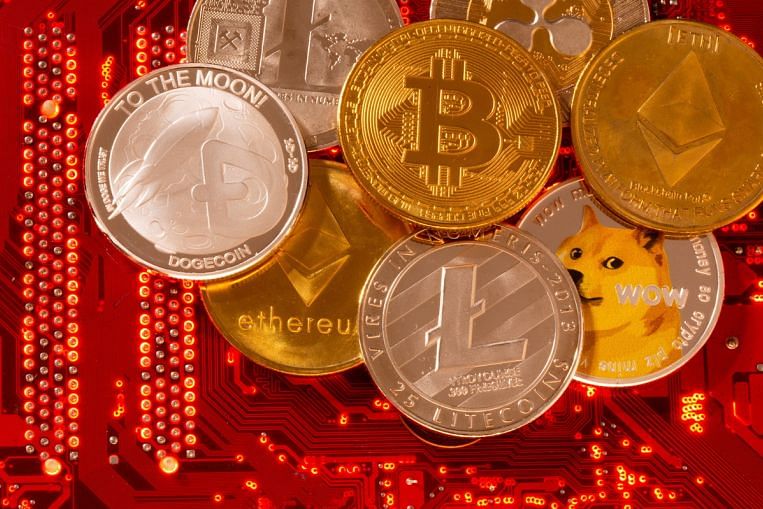
SEOUL (THE KOREA HERALD/ASIA NEWS NETWORK) – South Korea has moved to push back the planned taxation of virtual assets despite strong opposition from the financial authorities, raising questions about whether the country is properly handling the nascent category of digital investment.
The National Assembly’s Strategy and Finance Committee on Tuesday (Nov 30) passed a revision bill that would delay taxation of capital gains from the trading of cryptocurrencies by one year to 2023.
The delay is set to be confirmed at a plenary session of the National Assembly slated for Thursday. Under the revised plan, the government will impose a 20 per cent tax on capital gains of more than 2.5 million won (S$2,900) from transactions of cryptocurrency from January 2023.
Local cryptocurrency investors might be relieved to learn about the delayed taxation, but there are a host of issues that remain unresolved and potentially explosive.
One such problem is that the decision to push back the taxation of virtual assets is widely taken as a political gesture to win the hearts of young voters investing in cryptocurrency exchanges in the forthcoming presidential election – rather than a choice based on careful policy considerations.
Lee Jae-myung, the presidential nominee of the ruling Democratic Party, earlier expressed his stance in flavor of delaying taxation of virtual assets in a meeting with young people, citing the lack of preparations and the need to give more investment opportunities to the younger generation.
Criticism about “populism” is already surfacing in the media outlets and online communities that the ruling and opposition parties agreed on the revised taxation schedule because they want to secure more votes from those in their 20s and 30s in the presidential election scheduled for March 9 next year.
The rare agreement by the two parties, which are usually engaged in bitter squabbling over policies, came after the Finance Ministry had reiterated its view that the taxation scheme should be implemented from January 2022 as planned and preparations have already been made to collect taxes from cryptocurrency investors.
The dispute over the taxation of digital assets, especially regarding cryptocurrency’s status in terms of financial instruments, has been brewing in line with the rapid growth of the blockchain-based startups and exchanges.
But the opposite positions of lawmakers and financial authorities over cryptocurrency taxation is sending a confusing signal to investors. Some might take the delay as a chance to hit it big while investment gains in cryptocurrency trading is temporarily “tax-free” in 2022.
After witnessing the impact of political calculations, cryptocurrency investors may put more pressure on politicians to increase the tax-free allowance from the planned 2.5 million won.
They claim that the tax-free allowance is unfair given that stock and bond investors are scheduled to pay taxes on gains of more than 50 million won from 2023.
Another problem is the controversy surrounding the definitions of cryptocurrency and virtual assets. The government holds a conservative view that cryptocurrencies are “intangible assets,” denying them the full-fledged status of real assets. Strangely, it is eager to collect taxes on the trading of cryptocurrencies.
The Finance Ministry earlier warned that trading of cryptocurrencies is susceptible to new types of fraud and illegal fundraising. Indeed, trading of digital tokens is banned in some countries due to their volatility and risks.
Some critics argue that Korean financial regulators have been slow in setting up strong protection measures for virtual asset investors while rushing to impose taxes on the fast-changing forms of digital assets.
The latest dispute about taxation for cryptocurrency trading bodes ill for public discussions over policies governing new types of digital investment such as NFTs, or non fungible tokens, the blockchain-based collectibles that are sweeping art worlds and turning a horde of digital art collectors into millionaires overnight.
Currently, Korea’s financial agencies have different ideas about whether NFTs are subject to taxes. Both lawmakers and financial authorities are required to closely weigh all the major points of digital assets and taxation policy again to protect investors.
- The Korea Herald is a member of The Straits Times media partner Asia News Network, an alliance of 24 news media organisations.
This news is republished from another source. You can check the original article here

Be the first to comment